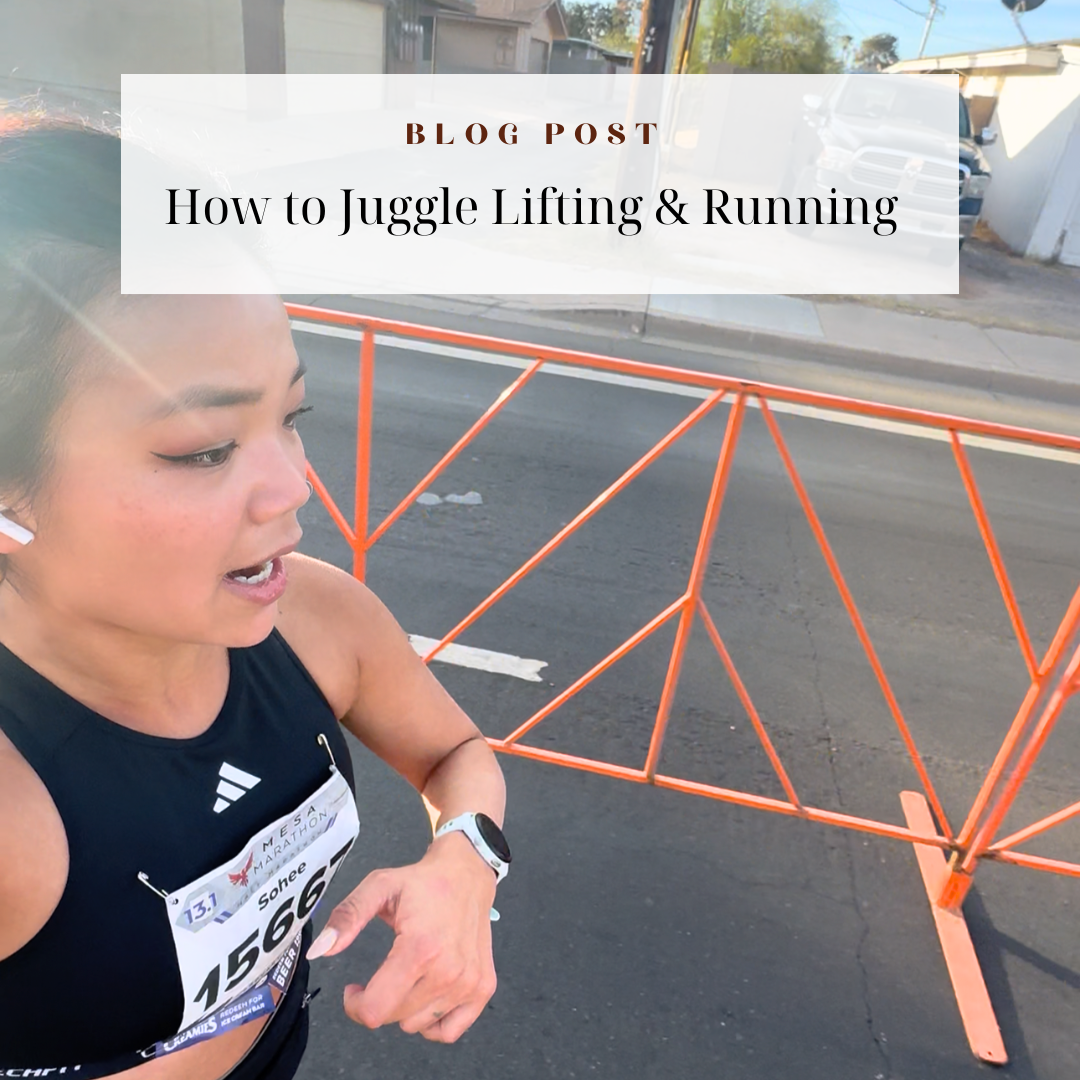Physique Science Radio Episode 1: Introduction

Hi everyone, I’ll be continuing with the podcast transcriptions for those of you who prefer to read rather than listen. This one’s the very first Physique Science Radio episode from waaaay back when. Funny, I was still living in New York City during this recording. Oh how times have changed! Nevertheless, re-reading everything here, I can assure you the content is still very good. Enjoy!
LAYNE: Hi and welcome to the first episode of Physique Science Radio, presented by BioLayne LLC. I’m here with Sohee Lee. How are you doing, Sohee?
SOHEE: I’m doing great! I’m super excited. I’m pumped!
LAYNE: I can hear it – you’re about to break the desk over there. I’m assuming a lot of our listeners will know a little bit about us, but for those that don’t, we’ll give a brief introduction. I got into nutrition and fitness because of the whole story – I was picked on as a kid, all that kind of stuff. I ended up parlaying that into a love for bodybuilding that extended into a bachelor’s in biochemistry and a PhD in Nutritional Science, and went on to get a pro card in natural bodybuilding and powerlifting. All that jazz. Today, I have kind of gotten to the point where I’m known as fighting the invisible war against “bro-science”. It’s funny, you and I kind of came across each other in a funny way. You were writing an article. Why don’t you tell our listeners about yourself and how you got into fitness and where you are now.
SOHEE: Sure, well, I got my beginnings when I was 13. I was going through anorexia and bulimia. The funny thing is I was able to hide it from my friends and family and nobody knew anything about it. At the time, I didn’t recognize that it was an eating disorder. I didn’t see it as a problem until later on. I went to high school, I continued to struggle. I was running 10-15 miles a day. I was terrified of gaining weight. My senior year of high school, after I had gotten into college, I got into weightlifting. I saw an Oxygen magazine actually and I loved the look of the cover model. That’s the first time I realized that it’s possible to look like that [muscular while still being feminine] without being a professional athlete. I just didn’t know.
LAYNE: It’s interesting that you talked about getting into it from an eating disorder. We hear that story a lot. We also hear the opposite story that people get into fitness and then get eating disorders. One of the things that you and I are both passionate about are trying to help people with eating disorders because we see it so much as coaches. I never realized how problematic and prevalent it is in the fitness industry. I’ve seen it destroy people’s lives. They can’t do anything without obsessing about food.
I’ve worked with some of the top physiques in the country and you wouldn’t believe how self-conscious some of them are. I think that what will set this show apart from other shows is we will touch on the physiological and psychological.
You and I met – we are about balance and the scientific method, about not being a zealot or dogmatic about any one point. We look for the most optimal way with the minimal amount of suffering. I tell people, yes, you’ll have to make sacrifices in fitness. What I see is people sacrificing for the sake of sacrificing so that they can brag the most about having sacrificed the most. That’s completely stupid. You were writing an article about intermittent fasting, correct?
SOHEE: Yes, it was the middle of the night. I was beginning to build my brand. I was an intern at Cressey Performance at the time so I had to go to work the next day. I was on GChat a lot and was referred to you as someone who was an expert and a contact offered to reach out to you. I emailed you in July of 2012, and I think you got back to me in less than an hour, really late at night, and you gave me a paragraph, and I added to my article and the next day it exploded.
LAYNE: You actually liked a lot of things about intermittent fasting, right?
SOHEE: Yes, I was actually doing intermittent fasting at the time, which is why I wrote the article.
LAYNE: I think that’s where we’re going with this – a lot of the people that are zealot followers. I got people that are almost the same way about me. I appreciate the support, but I want people to take things and research them themselves. I really didn’t say anything bad about intermittent fasting. I said that I thought that it was fine for fat loss and if it fits their lifestyle well. Based on the research that I had done in school, I didn’t think it was optimal for muscle mass. That was pretty much the gist of what I said.
We both got a significant amount of blowback for that. It was like we went in and kicked people’s dogs and pissed in their cereal. I don’t want to say it’s surprising because I know people get that way. In science, there are no beliefs – either you support a hypothesis with data or you don’t. When you have beliefs, you get very emotionally tied to that. It was very interesting to see how that whole thing went down.
We kind of chatted back and forth over the years. Last year, after I had done the whole metabolic damage video, I was getting so many inquiries a day. I was spending 1-2 hours per day writing people back that I couldn’t work with them. It was taking so much of my time. I had always prided myself on answering every email that I got, but it got to the point where I posted on Twitter that if you’re not a client I can’t promise that I’ll get back to your emails.
You then sent me an email that you wanted to help. I said that I wouldn’t let you help for free, I wanted you to get something for your time. You were either the first or second person that I hired. [After that,] I went on a hiring spree. Ben Esgro was the first. Ben was the staff registered dietician for BioLayne, and then Sohee does basically everything else. I handle the client interaction. Basically what you did for me was free up a lot of my time so that I could work with clients. Now you screen the clients and help to refer people that we can’t take on. I don’t think you knew what you were getting into, did you?
SOHEE: Uh, no. But I came prepared with my tricks to be more efficient and I figured out my own system, so we’re good now.
LAYNE: I still get inquiries, but now people know that I’m pretty full and they are serious. Now we get to expand and do this podcast. A few of the things that we are going to cover – nutrition, training, and we may even tackle news every once in a while.
We want to make the focus on the science and bringing it to a level that people can understand. The people that aren’t scientists just give up because they can’t understand anyway. We are going to try and distill that down. Give you guys the research and the tools and relate that with our own practical experiences with ourselves and our clients. This is just to introduce you guys to us and what we do. Sohee, why don’t you list your credentials so people know.
SOHEE: Well, I have my background in pre-med in college, but I majored in Human Biology. In my senior year, I tweaked my major to Psychological and Biological Determinants of Health, which is a fuzzy way of saying everything to do with being human. I made up my own concentration. I interned at Cressey after I graduated. Now I’m in New York and I’m a trainer at Peak Performance. I have my NSCA-CSCS and I’m studying for my Precision Nutrition certification.
LAYNE: I have my Bachelors in Biochemistry and then I did my PhD in Nutritional Sciences with an emphasis in protein metabolism. And that’s it. I didn’t want to go out and get any more certifications. All my academics drained all the life out of me in terms of letters behind my name.
I think a strong science background is great, but one of the reasons I wanted you on the show as my co-host is I wanted a woman’s perspective and I also wanted someone else who is a coach, who could understand the day-to-day interactions.
I plan to have one guest per month. Maybe two shows per month, but a lot of guests. We have some that I’m so excited to bring to you guys. We picked a couple of questions from Twitter and we’ll answer some of those.
The first question that I got was, “What is your favorite way to determine baseline metabolism for setting macros?” Sohee, what do you use?
SOHEE: Most of my clients are fat-loss clients, mostly women. I have them fill out a comprehensive client questionnaire. Dieting history, how much they are training. Very generally, I like to set at 12x bodyweight calories. I like to set total calories first. Then, I’ll set protein, and carbs and then remaining for fats. I have a spreadsheet that helps me for this. If someone has a lot of weight to lose, I can start at 10x bodyweight. If I have a 200lb client and they have very low protein, I don’t set them at 200g protein a day, they won’t get anywhere close. Maybe I’ll do 0.8g of protein. I take everything into account.
Notes: I determine calories and macronutrient needs very differently for clients now. Over the years, I’ve learned that most people can get away with higher dieting calories than previously believed. I’ve got many people dieting on 13x bodyweight (in lbs) calories, and every now and then I can get people to drop body fat on as high as 15x bodyweight (in lbs) calories. This all depends on the person’s activity level, dieting history, genetics, and more. For protein, I now prescribe 1g per 1lb lean body mass for most individuals.
LAYNE: I’m a little different – not too dissimilar. I do dietary recall. I have them track their numbers for about a week and tell me if they are gaining, maintaining, or losing. I will sometimes do bodyweight times a number. But based on that number is where I may start them out. I have a gal who was getting ready for a show because she was 35 lbs over her show weight. She only gave me 18-20 weeks to get her ready. It’s a lot of body fat for a woman to lose in that period of time. It turns out she was maintaining on over 3500 calories a day at 170 lbs. I was able to diet her down on 2500 calories a day, if it was 12x it would have been 2040. Bodyweight x a certain number will work for most people. You’ll have the opposite at times when you’ll have someone maintaining on 1200 calories and doing a ton of cardio and 12x bodyweight won’t work, but in that case, I tell them to consider reverse dieting. We will also have a show covering that for sure. I set calories first and protein I set around 1g per pound mark, unless someone is obese. Age also comes into play, other factors.
I had a gal come to me that was 140lbs and ate 300g of protein per day. She got guru’d as we like to say. Coming from that perspective, I dropped her to 220. I knew that if I dropped her to 140, it’s hard to convince someone once they’ve been doing something. I look at protein first, fat second. I like to have a minimum of 20% of fat. There’s some evidence that if you have fat too low you can have hormonal issues. I’ll go anywhere from 20-40% of calories from fat. If someone was eating really high fat, I might do 30-40% it may be easier for someone to transition. And then the remainder of calories, I will do carbohydrates. I think you and I will agree that the real function of a coach is not at the beginning it’s the upkeep and correspondence that makes a difference.
This question comes from another client of mine, Lori Pyper, IFPA Figure Pro. She’s badass.
https://www.instagram.com/p/BQTVdXfgNbg
She had a question: Why is it important to only make small adjustments in your calories rather than cutting them a bunch? You are going to have plateaus, but her question is why you’d want to do that slowly rather than take big chunks. What do you think, Sohee?
SOHEE: We can approach this from a number of different angles but from a practical standpoint, I want to be able to feed my clients as much as possible while also getting them to their goals. If I can get them eating 150g of carbs a day and they are making progress on that, I have no good reason to get them down to 100g of carbs a day. Maybe they would make faster progress in the beginning but eventually they are going to stall and once you get there, you are backed into a corner where you are going to have to drop calories even more.
LAYNE: This is where you get into metabolic capacity. If you had two people and they are exactly the same and they have the same amount of fat to lose, but one maintains on 2,500 calories a day and the other on 4,000 calories a day, who is going to have an easier time dropping body fat? It’s going to be the 4,000 calories a day because their metabolic rate is faster.
I’m with you – I want them to diet on the most calories they can diet on and still make progress. For every individual person, that will be a different numbers. Why would I drop them lower than that? It doesn’t make sense. Unfortunately, there are a lot of coaches out there, that say 800 calories, 1000 calories, 1200 calories. What happens when you stall – and you will stall – four body will adapt. The goal is to have something left in the tank to cut from.
If you have a gal and you start her out and she can diet on 150g of carbs and then you cut her to 120 or 130 and then she stalls again and you cut her to 100 and she picks back up. You see people who stall and they cut their calories massively. Your metabolic rate is the biggest asset you can give yourself and you see people destroy their metabolic rate with the way they diet over time. It’s extremely important to keep calories as high as you possibly can.
SOHEE: On the flipside, a point that doesn’t get brought up nearly enough by coaches is, “If I’m working with you as a client, then you should change my plan every 2-4 weeks.” Especially when it comes to nutrition. I’ve kept a client on the same macros for 8 weeks because there was no reason to change the numbers. The job of a coach is to know when to change numbers. If you think that you don’t need me because you think I’m being lazy, think about what you would have done without me. You would have said, “Oh, I think I’m making progress but it’s been 2-3 weeks, let’s cut more calories” without needing to at all.
LAYNE: You are 100% right. Are you interested in optimal results or are you interested in my doing busy work so I can look busy? It doesn’t take a bunch of time to say keep things the same or change the numbers.
I had a guy and put him on a prep plan and I never had to make a single adjustment to his diet. He was an outlier. Most people will typically stall everywhere from 2-4 or 4-6 weeks. That means in an 18-week diet, you could have about 6 different sticking points if on average you stall every 3 weeks. That’s why you want to be on as many calories as you possibly can. That’s important to keep in mind. If you’re dropping just for the sake of dropping you are encouraging your body to make these negative adaptations which is exactly what you don’t want. I think that’s an extremely important point.
I will have people say, “Hey, as you lose weight, do you reconfigure macros?” So if you started out with 12 x bodyweight for something, since I lost 2lbs, should I then take my new bodyweight and be 12 x that? Or should I decrease my calories by 5% per week?” I’ll tell people no. You only make adjustments as needed, and that’s kind of the same thing with reverse dieting. There’s a little bit of difference because with reverse dieting, you want to make adjustments because you’re feeding people more. But let’s say they put on a little bit of weight and put on a little bit of body fat, you don’t make an adjustment just because it’s time to make an adjustment.
You want training periodized, and I get people who want a new program or this or that. But I believe in the adage of, “If it ain’t broke, don’t fix it.” You don’t want to set your threshold too high for training volume or too low for calories.
I think that covers it! Obviously, we picked out 3 or 4 questions that we were gonna answer and then, of course, I got talking. But we wanted to give you guys a taste of what we’d be discussing on this show.
Hopefully, you guys will subscribe to us on iTunes and you can check out more about the show at BioLayne.com. If you want to find out more about me, go to Twitter @Biolayne, Facebook.com/LayneNorton or YouTube.com/BioLayne.
Sohee, if people want to find out more about you, where can they go?
SOHEE: All my names are the same. SoheeFit.com, Twitter handle is @SoheeFit, Instagram is @SoheeFit, Facebook page is SoheeFit, YouTube is also SoheeFit.




